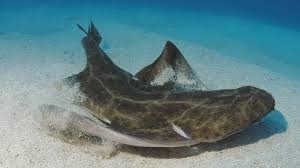Understanding Great White Sharks: Behaviour and Conservation
The Importance of Great White Sharks
Great white sharks (Carcharodon carcharias) are one of the most iconic marine species, often referred to as apex predators due to their crucial role in marine ecosystems.
Recognised for their strong presence in popular culture and media, these magnificent creatures are not only critical for maintaining the balance of ocean ecosystems but are also vital indicators of ocean health. Recently, the conversation surrounding their conservation has gained urgency, reflecting broader discussions about oceanic biodiversity and the impacts of climate change.
Recent Sightings and Behavioural Studies
In recent months, researchers have reported an increase in sightings of great white sharks along the coasts of the United Kingdom. This surge has raised questions regarding their migration patterns, breeding behaviours, and the influence of rising sea temperatures on their habitats. Studies indicate that these sharks migrate to warmer waters as part of their natural behaviour, which could be affected by ongoing climate shifts.
One significant study, conducted by marine biologists at the University of Southampton, has revealed new insights into the migratory patterns of these sharks. By using state-of-the-art satellite tracking technology, researchers have discovered that some individuals travel thousands of miles across the Atlantic, demonstrating significant adaptability and resilience. However, this also puts them at risk of human-induced threats, including fishing and habitat degradation.
Conservation Efforts in Action
Recognising the threats faced by great white sharks, several organisations have ramped up conservation efforts. The Marine Conservation Society (MCS) has been at the forefront, advocating for sustainable fishing practices and marine protected areas. Their campaigns aim to educate the public about the importance of these sharks and the necessity of their preservation.
Furthermore, collaborations between governments and conservation groups are essential to develop comprehensive shark management plans. These plans aim to reduce bycatch in fisheries, enforce stricter regulations against shark finning, and promote research funding to continue studying their behaviours and habitats.
Conclusion
The future of great white sharks lies in our hands. By understanding their behaviours and enhancing conservation measures, we can ensure that these fascinating creatures continue to thrive in our oceans. As climate change continues to alter marine environments, ongoing research and public awareness are essential. It is pivotal for the health of global marine ecosystems that we contribute to the protection of great white sharks and, by extension, our oceans.








